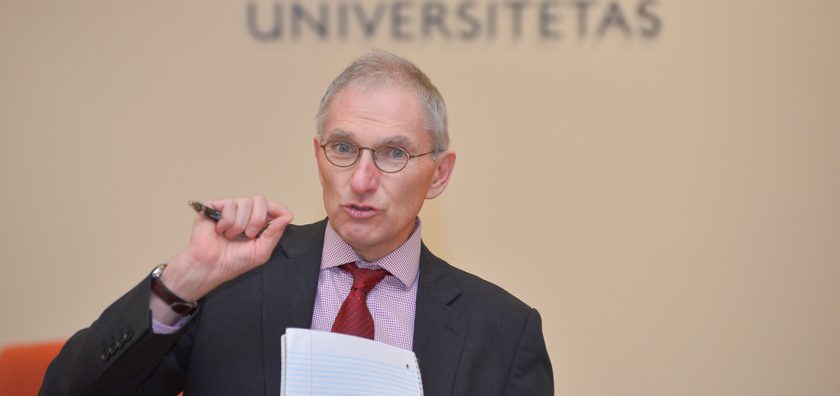
Mykolas Romeris University (MRU) Justice LAB member and U.S. Hamline University Political Science Dept. Professor David Schultz has been evaluating the upcoming June 16th Summit between U.S. President Joe Biden and Russia's President Vladimir Putin.
"The stakes are so big because what happens in the Summit will impact the relations between the U.S. and Russia for years to come," said the political science expert. "But, like during the Cold War, its impact for European and perhaps world politics is similarly significant," Prof. Schultz explained.
It’s not 1945, Yalta, said Prof. Schultz referring to the Yalta Conference held in February of 1945 when the heads of the government of the U.S. (Roosevelt), United Kingdom (Churchill) and Soviet Union (Stalin) met to discuss the postwar reorganisation of Germany and Europe.
It's not 1961, Vienna, Kennedy, and Khrushchev and it's not 1972, Moscow, Nixon and Brezhnev, Prof. Schultz added.
But the June 16th, Geneva Joe Biden and Vladimir Putin Summit may be one of the most consequential U.S.- Russian Federation Summits ever, ranking alongside in importance to many held between the two countries during the Cold War.
For President Biden, this is an important moment in his presidency and for U.S. foreign policy.
Under President Obama, the U.S. ignored or under-appreciated Putin and Russia. Obama dismissed Russia as a regional power and his “pivot to Asia” seemed to ignore the importance of Europe for American geo-political interests and alliance commitments. President Obama let President Putin outsmart him in Syria and the Middle East, and he failed to appreciate the development of military and cyber capacities being developed by Russia. Under U.S. President Donald Trump, the U.S. waived in its commitment to NATO. He scorned the European Union, and seemed enamored by President Putin. As a result, Putin’s Russia gained strategic advantages globally, splitting U.S. alliances, and developing new friends with Turkey and Hungary.
President Biden seems to realize the critical moment of this Summit and of the need to communicate to President Putin what America’s interests are, where lines are to be drawn, and what the U.S. is prepared to do to advance its interests. He also needs to convince allies, such as Lithuania, that he is there for them.
The issues that President Biden needs to press are many. It includes the Crimean occupation and the miniwar in the Donbas region of Ukraine as well as the Russian opposition leader Alexei Navalny, Belarus, Georgia, the cyber hacking of U.S. elections and businesses, and the support for Iran, and, perhaps, a need to renew nuclear agreements.
For President Putin it is the sanctions that have damaged the Russian economy for years and cut the the income of its people. Sanctions have prevented Russia from modernizing and diversifying the economy. President Putin’s popularity is waning, and his party faces crucial elections later this spring. Ukraine is slipping out of the Russian orbit, and - perhaps eventually Belarus. Relations with many former allies in Eastern Europe are now strained–the Czech Republic is on Russia’s list of hostile states.
And for Lithuania, and a host of other states in Eastern Europe and of the former Soviet Union, they too are watching to see what comes next. How do the U.S. and President Biden make clear America’s intentions and force President Putin to change his behavior? Can in fact, the U.S. do this? Or has more than a dozen years of neglect already let too much time pass, giving Russia an upper hand? These are all good questions.
The year 2021 for the U.S. and Russia is very different from the past. The two states are not the dominant players in a bipolar world. The U.S. economy is far larger than that of Russia’s. It spends far more militarily, and its alliances potentially are far greater and stronger than Russia. Yet President Putin’s Russia has played on American indecision and failure to clarify its objectives and act on them.
The U.S. sees China as its biggest threat and rival. This Summit will clarify where Russia stands in terms of American interests, and how and where it sees the importance of Europe in its future foreign policy interests. President Biden remembers the USSR. So does President Putin. How both approach June 16th, will tell us a lot about whether the U.S. is in a new version of the Cold War or whether there is some new relationship that can be formed that aligns U.S. interests with Lithuania.